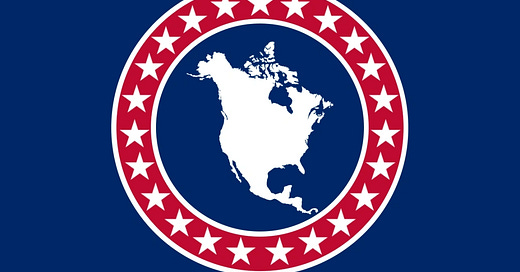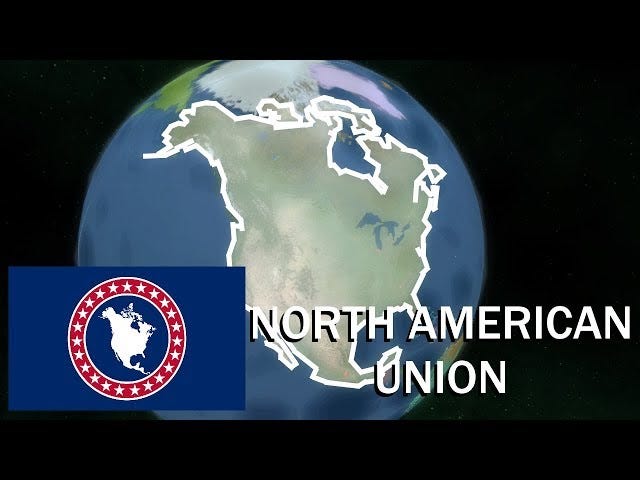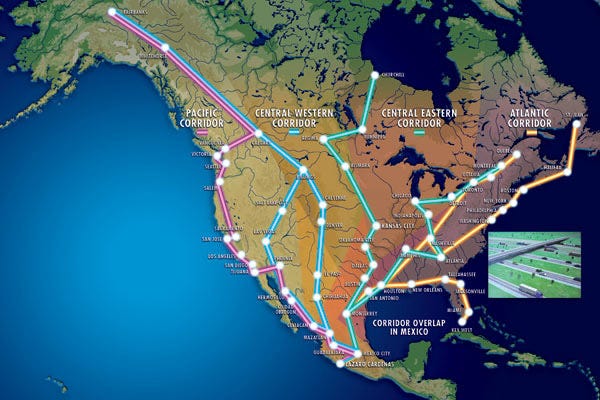Since Biden took office in 2021, America has experienced unprecedented levels of immigration which have never been seen before in human history. Despite the Republican alarmism over Obama, Obama's eight year presidency saw similar levels of immigration as Bush and Trump. Biden blows all three of them out of the water.
The election of 2020 proved that Hispanics of the future are not a DNC constituency -- they are, like Puritan whites (Vermonters, Minnesotans) or whites with associate degrees, a swing constituency, which can either go Republican or Democrat. Despite Tucker and Vivek's claims about the "Great Replacement" of Republican whites with Democratic Hispanics, the effect that Hispanics (and immigrants in general) have on politics is effectively nil.
The most politically polarized groups, which are the most activist and show up to polls and decide elections are: LGBT voters, college educated voters, black voters, and evangelicals. In the future, Asian voters will become a much greater threat to Republicans than Hispanics, unless Republicans can succeed in winning them over as well (this will be difficult since they effectively mirror and follow the trends of college educated whites, who are fleeing the Republican party).
The demographic group which is the least Republican, which is growing as a percentage of a population, and which is becoming less Republican over time are college educated whites. If the DNC wanted to spend taxpayer money to win elections, they would be better served by prioritizing student loan forgiveness than by opening the borders.
The only way that Democrats can convert Hispanics in large numbers back to the DNC is by educating them. The strategy of bringing mass numbers of highly religious, working class Hispanics into the country is not an efficient use of DNC political capital, and it would be much more efficient to focus on the proven strategy of increasing the percentage of Bachelor degree holders among whites, Hispanics, and Asians.
Immigrants lean Democrat. However, naturalization takes time, and naturalizations as of 2022 have still not exceeded the all time high achieved in 2008. The only sense in which immigrants have an immediate political impact is that they increase census numbers for border states such as California, Arizona, New Mexico, Texas, as well as states which attract large numbers of Hispanic immigrants such as Illinois and New York. If Hispanic resident aliens migrate overwhelmingly to Democrat controlled states, they will potentially increase the number of electoral votes those states have for the presidential election. But this is essentially "amplifying white liberal voices," similar to the 3/5ths compromise, which amplified southern white votes by counting blacks toward the electoral college.
One argument regarding immigration is that it will make the quality of the country worse. Immigrants are stereotyped as dirty, dumb, criminal, violent, malevolent, unpatriotic, hostile, resentful, racist towards whites, ungrateful, entitled, or parasitic. Donald Trump has promoted these stereotypes, while simultaneously promoting merit-based migration, similar to Canada or Australia. In the merit based system, immigrants would be clean, smart, peaceful, grateful, and contribute more to the system than they take out.
The distinction between these two systems is stark, but the implications of both are not fairly compared. In the first case, the importation of a vast underclass does not significantly threaten the American political order. Poor, illiterate, unskilled laborers do not become doctors, lawyers, or even politicians. Hispanics have notoriously poor turnout, similar to Arab Israelis, and there are no significant Hispanic political figures in America that approach the Obamas, Kamala Harris, Trump, or Biden. In primary campaigns, no Hispanic has ever hit double digits in polling numbers in the DNC or RNC, despite making up a larger percentage of the population than blacks.
By contrast, Vivek Ramaswamy, Nikki Haley, Bobby Jindal, Tulsi Gabbard, Kamala Harris, and Andrew Yang have all been touted as new, fresh, exciting faces in their respective political parties. AOC is the only nationally recognizable Hispanic face in the DNC, and her opinions and attitudes are more reflective of Brooklyn hipsters than Hispanic American culture. On the other hand, white or Cuban Hispanics like Ted Cruz and Marco Rubio play an outsized role in the RNC. The religious shift among Hispanics away from the Catholic church and towards evangelical protestantism is also associated with the broader right-ward shift of Hispanic politics.
The underrepresentation of popularly-recognizable left-leaning Hispanics in national politics is to be contrasted with the overrepresentation of Indians and Asians on both left and right. Nationalistic Americans, who are concerned about the political changes that foreigners might impose on America, are more hateful toward poor immigrants, but actually face a much more substantial threat from Trump's "merit-based" system.
Despite making up only 1% of the population, Indian Americans make up 100% of the potential vice presidents in 2024. This is assuming that the current pool is made up of Haley, Ramaswamy, and Harris. While this is a bit tongue-in-cheek, and could be subject to change, the fact is that the rise of Indian Americans and other "model minorities" has been meteoric, and could significantly change American politics much more quickly than Hispanic immigration.
Unlike black Americans, Trump's "merit-based migrants" have no historical connection to the country, and are completely alienated from the Mayflower, the American Revolution, the Civil War, or even the Vietnam War. Ramaswamy, in an almost comedic fashion, makes endless references to "our founding fathers," "our war of independence," and 1776. One unintended consequence of this merit-based "great replacement" of white Americans with Indian or Asian Americans means that the traditional American civil religion will be undermined, and with it, the tradition of democracy.
Indian Americans will not overthrow American democracy, and this is not the point. Rather, the implication is that the overrepresentation of Indian Americans will promote a general political atmosphere of minoritarianism rather than majoritarianism. I argue that Obama's greatest political legacy had little to do with his policies, but rather his race alone disturbed the traditional American political order and caused the "whitelash" which led to the rise of Trump and the alt-right. While Ramaswamy, Harris, or Nikki Haley are not likely to lead to an antagonistic racial response, the recognition of overrepresentation by elite minorities could intensify the shift toward minoritarian identitarianism which is already occurring.
Although this essay will not fully explicate the theory of minoritarianism in all its possible interpretations, suffice it to say that the theory posits a general trend away from the majoritarian norm of America as a "nation state." As the American nation declines, the mythology underpinning the legitimacy of the state will continue to degrade, leading to alternatives. Whether those alternatives are inspired by Xi's China, Bukele in El Salvador, Netanyahu in Israel, Orban in Hungary, Putin in Russia, or Milei in Argentina, the shifting core of America's mythological center will present new challenges and opportunities.
One picture of America's future lies in South Africa, where the white elite "surrendered" political control to victimary ethno-narcissism, in exchange for under-the-table deals across international financial markets. White or Jewish led firms still control South Africa's rich natural resources, and quality of life for black South Africans have undeniably decreased, as in Zimbabwe. It is possible that American elites similarly "surrender" the country over to a reparations and affirmative action regime which cannot keep the power on. American nationalists already argue that Reagan, Clinton, and Biden are all guilty of selling out the country to globalists. It stands to reason then that an Asian elite would accelerate this process.
Given my own Jewish heritage, my analysis is biased. However, the Jewish American role in American political life is the best example of how "model minorities" choose to influence the political process. In general, the tendency of model minorities is to oppose majoritarianism in all forms, whether ethnic, religious, cultural, or simply national. As a result, Jewish Americans have been uniquely motivated to oppose white majoritarianism, Christian majoritarianism, American patriotism, flag waving, norms of decency or obscenity, sexual norms, and have promoted fringe cultural movements such as the hippies, evangelicals (which they later came to oppose due to their success), goths, emos, and LGBTQ culture.
Causal explanation for this behavior range from conscious conspiracy (as with Henry Ford, Protocols of the Elders of Zion), to a "group evolutionary strategy" (as with Kevin MacDonald), or as the spiritual manifestation of the battle of the "synagogue of satan" (as with Nick Fuentes and E. Michael Jones). None of these polemical, salacious, grandiose theories are necessary. Instead, a general theory of minoritarianism states that all self-conscious minorities will either try to rule the majority outright or will attempt to safeguard themselves from persecution by undermining majoritarian identity.
Which path they take is largely related to the class structure of that identity, with warrior elites choosing outright rule (Normans, Romans, conquistadors), and mercantile elites choosing to merely safeguard their own existence (Mennonites, overseas Chinese, Armenians). The unique priestly tradition of Judaism, with its own special relationship to Christianity, does mean that Jewish minoritarianism, especially within traditionally Christian countries, will necessarily take on a different character than Indian or Asian minoritarianism. But this does not require a supernatural explanation, so long as we can view religion from a scientific or sociological perspective.
If all successful minorities pursue a minoritarian strategy, then Jewish Americans are merely the most effective minority. What lies behind Jewish effectiveness, either in the field of medicine, entertainment, dentistry, law, or finance, is up to debate. But if African Americans were as effective as Jewish Americans, they would likely promote much of the same anti-majoritarian measures. Indeed, the most effective black activists, whether from the NAACP, to MLK, Obama, or Black Lives Matter all tend to oppose majoritarianism on some axis, whether ethnic, religious, sexual, cultural, or political.
This is not to say that the average Black American is opposed to a white majority, heteronormativity, capitalism, Christianity, or the nuclear family. And in fact this is the entire point. Unsuccessful minorities, whether they be Roma, Irish Travelers, Black Americans, Hispanic Americans, or Native Americans, are unable to push minoritarianism to undermine the majority. Successful minorities, by contrast, can and will. The best way to understand America's political future is not to see Jewish Americans as a bizarre exception to the rule, but to see them as a model for others to follow in the challenging of American traditionalism.
As the descendant of recent immigrants, I have an additional bias in being disconnected from the ethnic American tradition. I have no special interest in maintaining the white, Anglo-Saxon protestant character of America. Therefore, my analysis of minoritarian groups, whether they are Jewish, Indian, or Asian, is not coming from a place of hostility, hatred, or resentment, but from a genuine desire to understand the direction of the country.
All of this is to preface the proposal of a radical change in the character of America, and like MLK, to propose a new vision for the country. This vision is necessarily unpopular, just as no Romans cheered on the insertion of Caesar's Gauls into the senate. But it is a logical and inevitable consequence of deeply ingrained trends and incentives.
The North American Union would be a trade, customs, and border union of Canada, Mexico, and the United States, first envisioned by FDR during World War II, and later introduced under NAFTA. The NAU would be the largest country in the world by land area, have the greatest amount of oil, gas, and shale resources, have the greatest agricultural resources, and one of the largest populations.
The NAU would stretch from the arctic circle to central America, and be connected by a series of highways and airports, united under a common currency with a common legal regime, common military, common labor market, common real estate market, and common federal government. The NAU would eliminate the English-French bilingualism of Canada and replace it with a new English-Spanish bilingualism. All college graduates would be forced to learn both Spanish and English at a professional and fluent level.
Fears of an NAU center mostly around the mass immigration of Mexicans into the north, the spread of crime and drug syndicates, the loss of Anglo-Saxon culture, the "regression to the mean" where the federal government would lower itself to Mexican standards, the loss of a white majority, the "electoral winter" where the DNC would use Canada and Mexico to destroy the RNC, accusations of colonialism or imperialism, and overpopulation.
The problem with these fears are that the choices that America faces are not between more or less immigration, but between poor immigration and rich immigration. The dreams of an immigration moratorium under Trump or his successors were based on lies and wishful thinking. The Trump wing of the Republican party is dedicated to merit-based immigration, which, through the influence of Asian and Indian elites, will inevitably lead back to the loss of American identity, from the top-down rather than the bottom-up.
However, a NAU does not necessitate the influence of an Asian American elite. This is evidenced by the fact that Mexico itself is not experiencing mass immigration of Asian elites. In the worst case, America would become very poor, very fast. But this newfound poverty would repel, by necessity, the further influx of Asian and Indian elites, thus preserving the present-day American elite.
It could be argued, cynically, that the present-day American elite is bankrupt, and deserves to be replaced by Asians and Indians. Maybe, after all, Indians and Asians will at least make the economy better. This is Trump's thinking, underneath platitudes and deceptions.
One of the issues with this argument is that it views the economy quantitatively, but not qualitatively. Qualitatively, American industries and manufacturing have fled to Mexico. If America wants to be a major military power in the 21st century, it will require Mexican industry and manufacturing. Removing the barriers between the countries and lowering the minimum wage would possibly even help bring manufacturing back into the rust belt, albeit with largely Hispanc workers.
On the other hand, the Trump plan for immigration would "grow the economy," but in what way? Silicon valley schemes, startups, apps, iphone games, dentists, doctors, lawyers, healthcare, and the FIRE economy. Trump believes that our Asian engineers will fight against China's Asian engineers.
America is overpopulated, and faces significant challenges from Russia, China, and Iran. Under a merit-based plan, America will remain a popular destination for immigrants, destroying the existing natural beauty of the country for the purpose of economic cannon fodder. On the other hand, if America takes the bold move of absorbing Mexico, the Mexican fertility rate will normalize to America's (as Hispanic immigrants are normalizing over generations), solving the overpopulation crisis and providing America the raw material and industry to challenge its enemies abroad.
The NAU, if successful, could precede a broader American Union which would expand further south. This would parallel the expansion of the EU or NATO toward Ukraine, with the destination of an American Union being the southern cone. It should also be noted that if Mexico was successfully integrated into an American political order, it would be comparatively easier to integrate other countries in South America which have a larger proportion of European ancestry, including Brazil, Argentina, and Chile.
An American Union composed of a dual Anglo-Hispanic identity could be akin to the dual monarchy of Austria-Hungary. Such a comparison invites a potentially crushing reality: nation-states with no dominant identity fail. In the case of Austria-Hungary, the dual monarchy was founded with the Austro-Hungarian Compromise of 1867, and failed after World War I in 1918. Would an Anglo-Hispanic Union also fail after only 51 years?
The solution to this problem lies in Rome. The Roman conquest of Gaul, Hispania, Britain, Germania, Dacia, Greece, Africa, Egypt, and Syria all imposed the Latin language, the Latin religion, the Latin legal code, and Latin military structure on local cultures. In Gaul, Hispania, and Dacia, the imposition was successful, creating French, Spanish, and Romania. In Britain, Germania, Greece, and elsewhere, the imposition was linguistically unsuccessful and those nations maintained their national languages. However, if Roman Catholicism is seen as a product of and extension of Rome (debatable but let us assume), then the Roman empire was ultimately successful in all areas, especially if we see Islam as a heretical sect of Christianity and a successor to the Nicean creed.
Therefore, to avoid the collapse of Austria-Hungary, and to emulate the success of Rome, the dual-language element would have as its goal 100% English literacy and fluency in all areas, whereafter the use of Spanish would be phased out. A similar plot, one could speculate, is already advancing in Europe, and in some time Scandinavian countries might begin to lose their native languages, just as Gaul and Hispania did.
The specifics of a "Roman" approach toward Mexico can be further imagined, outlined, and detailed, but the basic premise is meant to challenge the stagnant left-right divide. One side views Mexico as a victim to be given reparations and emulated, the other views Mexico as an enemy to be shut out. Ironically, the infusion of immigrants into the American political scene will make the draw of imperialism even more attractive. When congress declined to invade Mexico after the Mexican-American war, it was argued that the Mexicans would dilute and pollute the purity of the country. In an America ruled by Vivek and Nimrata, that argument will seem increasingly irrelevant. Such a shift parallels the one made by Caesar, as already mentioned. Such an empire, if cast in the model of Rome, will reign for centuries, marked by unprecedented conquest, religious revolution, and ultimately decadence and decline. But the show is not over yet. The decline of the American Republic has not yet reached its zenith, and the death of the Republic will give birth to the Empire.









